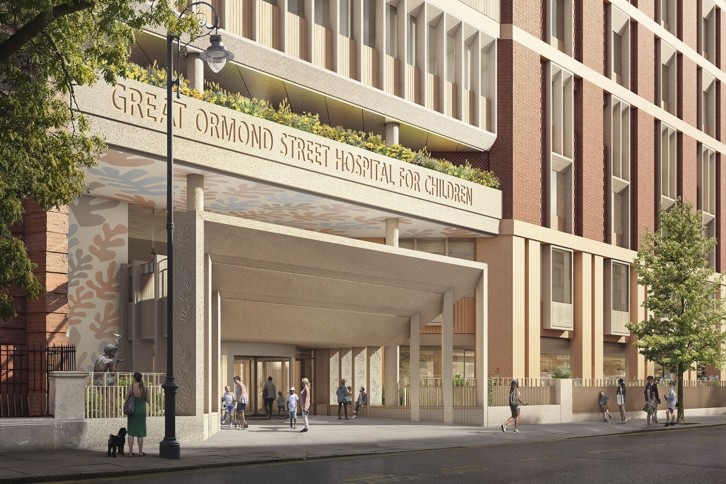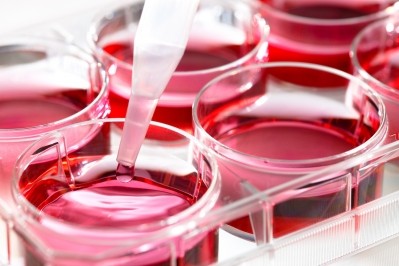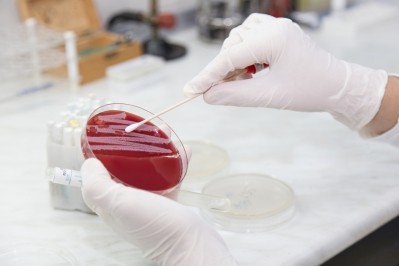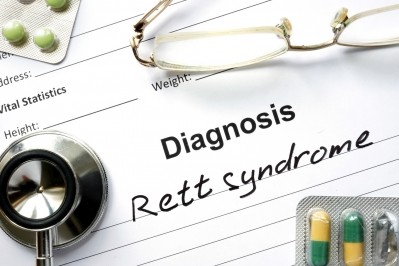Industry lauds Great Ormond Street's child gene therapy expansion

GOSH and its charity arm, supported by LifeArc, are joining forces in a plan which will see individual NHS trusts hold market authorization, or licence, for a gene therapy.
This is the first time such a plan has been trialled in the UK and it will be piloted with a lentiviral gene therapy for ADA-SCID, co-developed between GOSH and UCL Great Ormond Street Institute of Child Health in the UK and UCLA in the U.S.
ADA-Severe Compromised Immuno-deficiency (ADA-SCID) is a rare condition that means the immune system doesn’t develop and affects up to three children every year.
Children with ADA-SCID have a faulty gene that is responsible for the production of an enzyme, ADA, which plays a key role in helping cells in the immune system grow and divide. The gene therapy works by replacing the faulty gene with one that works, allowing the production of ADA.
“This feels very much like a turning point for gene therapy; if the NHS and NHS trusts can hold the marketing authorization and the product can be manufactured then there is no reason for it to remain on a shelf,” Lucy Foley, chief technical officer at eXmoor Pharma, told Bio Pharma Reporter.
“This promises a better quality of life for those who access such treatments and likely a reduction on-going healthcare costs long term. If successful, this initiative could pave the way for other gene therapies that have great potential to treat rare disease.”
Despite their curative potential, small patient numbers mean gene therapies are often not commercially viable for companies to invest in.
For instance, the gene therapy for ADA-SCID was previously licensed to UK-based biotech Orchard Therapeutics. However, despite positive results in a clinical trial, the company abandoned it after claiming to encounter technical difficulties.

Professor Claire Booth, professor in gene therapy and paediatric immunology at UCL and GOSH, said: “For rare and ultra-rare diseases, it’s a sad fact that there is little commercial reason for companies to develop costly treatments with very small markets.
“This means that treatments that have been shown to work through research are not getting to patients who could benefit from them. It’s simply not good enough that we have treatments that we know work, but we can’t get them to our patients.
“We must do something radical to tackle this. We are exploring what we can do in a place like GOSH, where we have the academic facilities to manufacture treatments combined with a rich history of working with other NHS hospitals, in research and clinical care.”
Ivan Wall, professor of regenerative medicine at the University of Birmingham and CEO and co-founder of FourPlus Immersive, also described the news as a ‘hugely positive’ step forward for the treatment of rare diseases ‘that are often not commercially feasible for drug companies to develop due to small patient populations’.
“It should also bring down the cost of treatment by reducing commercial costs because at present, the few instances of market-approved gene therapies produced by companies can have price tags in excess of $1m per treatment, which places a huge burden on the NHS,” he told Bio Pharma Reporter.
“We are increasingly seeing local manufacture of personalised gene therapies within specialist NHS centres and so this approach of giving market authorisation direct to the NHS trust will speed up access to critically ill patients.”
If successful, the model could also be applied to other treatments, according to the partners, who say there are around 3.5 million people in the UK living with a rare disease.
Mariah, the mother of healthy seven-year-old Sarah, has hailed GOSH’s new project and is encouraged that other children will be able to benefit from the same gene therapy her daughter received.
After being diagnosed with ADA-SCID at just a few weeks old, Sarah was part of an early gene therapy trial at GOSH.

“We hope that this new project at GOSH will mean that more families like us can get transformative treatments for rare diseases without uncertainty and go on living their lives and having new adventures,” she said.
“We have always felt quite lucky that Sarah got the treatment when she did, but it was only through the research programme that she got it. To think that we now know the gene therapy can work and families still can’t get it seems senseless.”
Lucy Jones, founder of the Opie Jones foundation, also celebrated the news, having experienced the potential of these advanced therapies firsthand – with her son Opie receiving successful CAR-T therapy at GOSH back in 2021.
“This is amazing news. This is a step in the right direction to provide patients with access to kinder therapies that will save their life,” she told Bio Pharma Reporter.
Both Aoife Regan, director of impact and charitable programmes at GOSH Charity, and Dr Catriona Crombie, head of rare diseases at LifeArc, lamented the fact that proven treatments are failing to reach patients due to commercial challenges – calling the current landscape ‘simply unacceptable’.
“Gene therapies can have a transformative impact and if successful, this model could be used for a wide variety of rare inherited diseases that affect children at GOSH and beyond. If we did not support this work children in the UK with life limiting illnesses would be unable to access proven therapies that we already know can transform their lives,” Regan said.
Crombie added that LifeArc is ‘incredibly pleased’ to partner with GOSH to see if this model could ‘lay the foundations for an entirely new way of giving more people access to life-changing treatments’.
As Wall points out, many novel, curative gene therapies emerge from university labs linked to hospitals and even those produced by drug companies are often discovered in academic labs.
“This new initiative could pave the way for many more similar authorisations, reducing time and cost to reach patients who need gene therapies. The same safety testing will be expected but this testing can be done in good manufacturing practice (GMP) facilities in hospitals as easily as in pharmaceutical companies,” he added.
For this initial exploratory stage GOSH will be working with partners experienced in clinical development at LifeArc and Parexel, one of the world’s largest clinical research organizations (CROs).
















